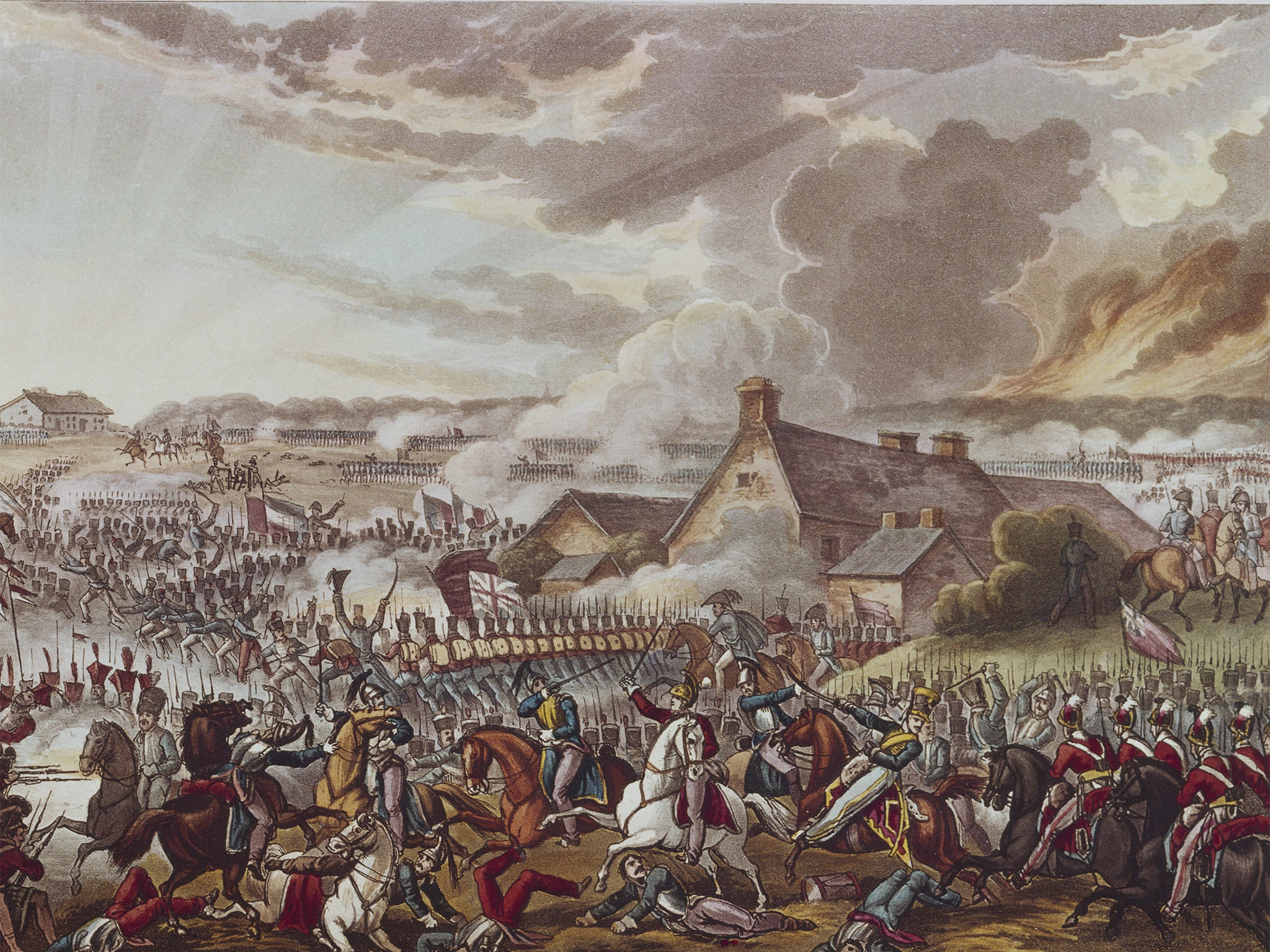Went the Day Well? by David Crane, book review: Heartbreak among the heroics as Britain went to war
Crane has come up with a terrific wheeze: don’t write a book about the battle, write a book about what was going on in Britain while the battle took place

So, what more is there to write about the Battle of Waterloo, in this 200th anniversary year? Perhaps not very much. But David Crane has come up with a terrific wheeze: don’t write a book about the battle, write a book about what was going on in Britain while the battle was taking place.
Crane has mined all kinds of sources: newspapers, memoirs, letters, records of court hearings, as well as the oft-quoted eyewitness accounts of the battle. This material is arranged in a series of chronological chapters, one for each hour of the fateful 18th of June, matching events on the battlefield with what was going on at the same time back home.
The result is an odd but engaging book, a necessarily random selection of vignettes of life in Regency Britain.
The whimsical essayist Charles Lamb and his mad sister Mary preside over a dusty little literary salon in their rooms near the Temple.
Eliza Fanning, a servant unjustly convicted of poisoning her employers, goes to the gallows in a public execution.
Thomas De Quincey, the “English opium-eater” writes ecstatically of the mail-coaches leaving London with the news of victory: “What stir! – What sea-like ferment! – What a thundering of wheels, what a trampling of horses!”
Perhaps you will find it in your heart to forgive Crane for misquoting Byron’s lines on the Duchess of Richmond’s ball:
“There was a sound of revelry by night,
“And Belgium’s capital had gathered there
“Her Beauty and her Chivalry ….”
It’s not “there”, it’s “then” – which rhymes with “men”, “when” and “again”, farther down the stanza. Whoops!
But the story that will really break your heart is that of Magdalene De Lancey. Married for only a few weeks to Sir William De Lancey, Wellington’s chief of staff, she sees him off to battle, endures the terrible days of waiting in Antwerp, finds him lying wounded in a cottage at Waterloo, and nurses him through his last few desperately sad days and nights: “All his endeavours seemed to be to leave none but pleasing impressions on my mind, and as he grew worse and suffered more his smile was more sweet, and his thanks more fervent, for everything that was done for him.”
So, plenty to enjoy on the way, but what does it all amount to in the end? Crane sees the Britain of the day of Waterloo as a nation on the brink of a great change. A feudal society in a world of dynastic wars is about to give way to democracy, high-mindedness and imperial grandeur. And the battle itself, icon of a nation united in defiance of tyrants, will contribute to the myth of Victorian Britain’s moral mission.
Order for £16.50 (free p&p) from the Independent Bookshop: 08430 600 030
Join our commenting forum
Join thought-provoking conversations, follow other Independent readers and see their replies
Comments